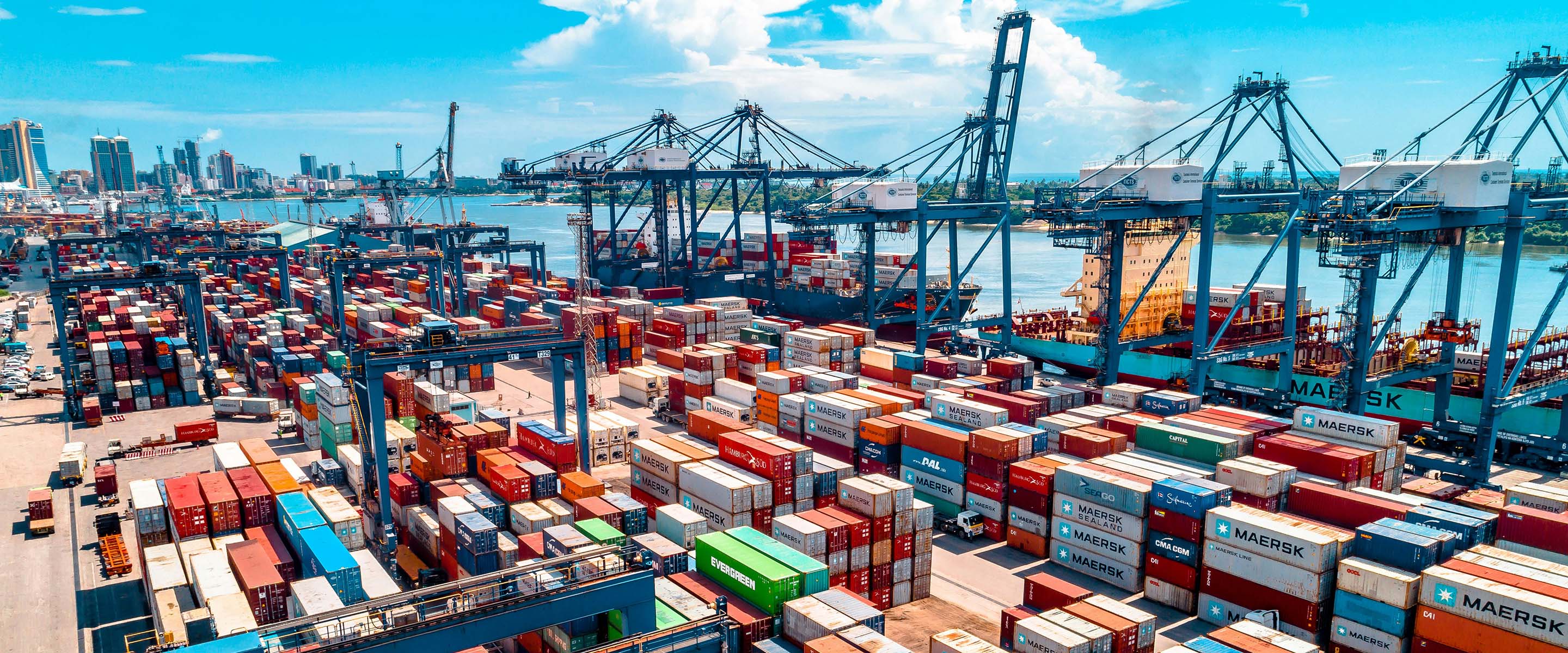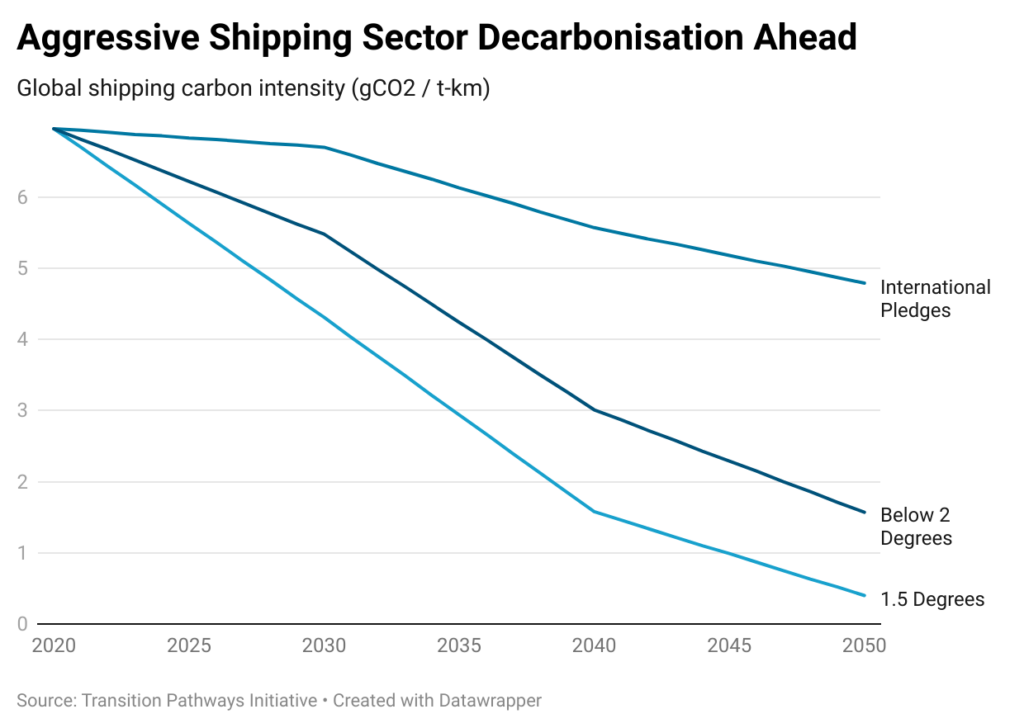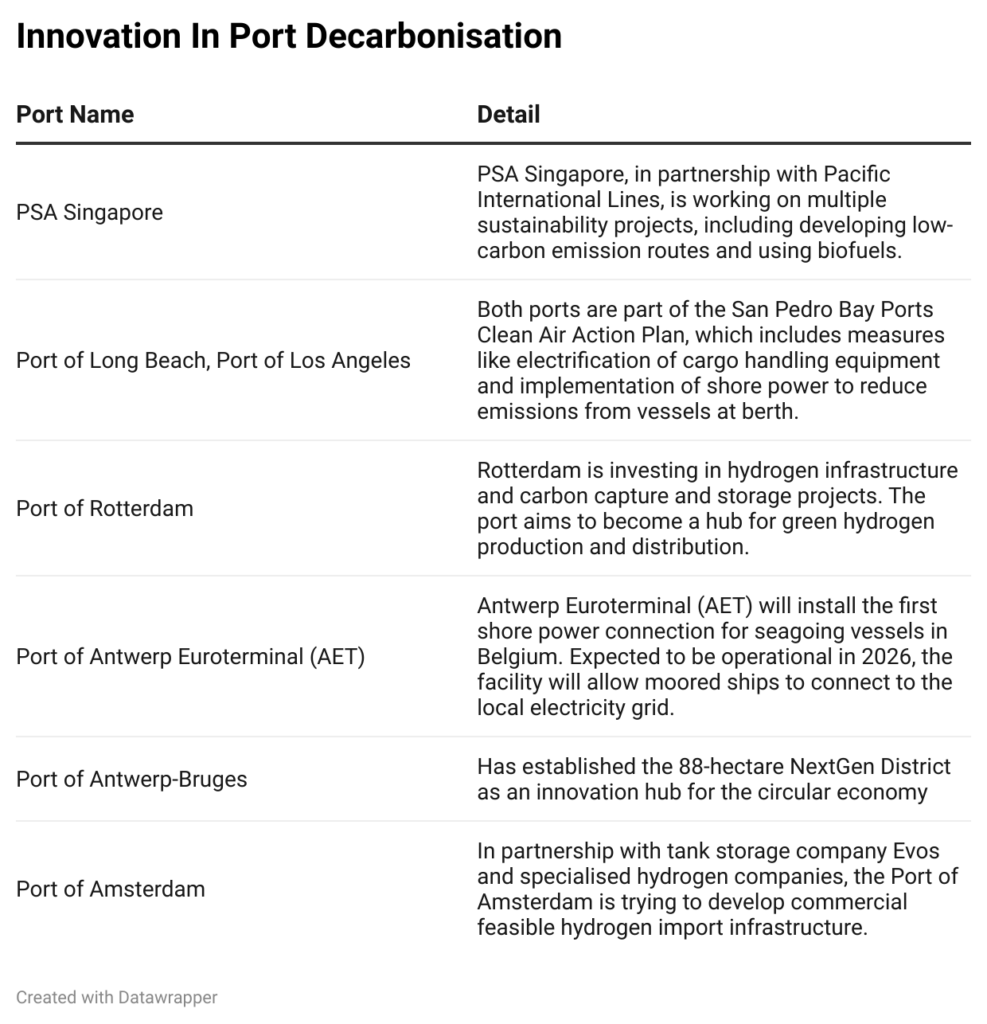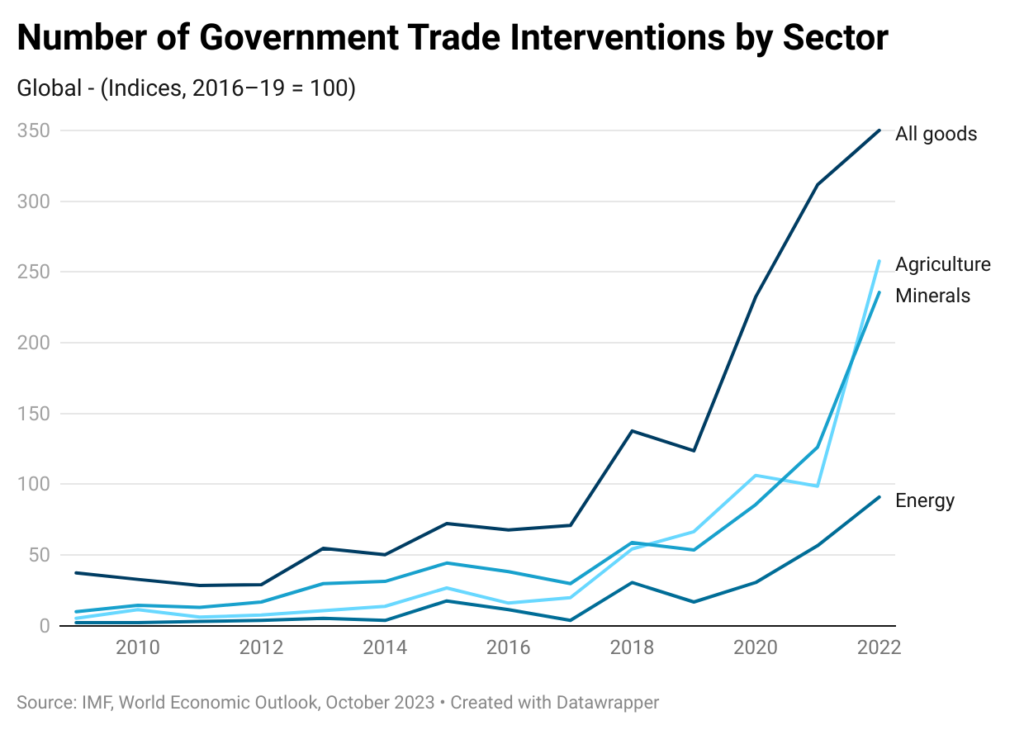The Materiality of ESG for Ports: A CarbonBetter Perspective


🌍 Carbon markets can feel overwhelming—fragmented data, limited transparency, and conflicting advice make it hard to know where to start. In this webinar, our experts give a clear, practical introduction to the VCM.

At SXSW 2024, we hosted a panel titled “Sustainable Supply Chains: Addressing Hidden Emissions.” We were thrilled to have Caitlin Leibert from Whole Foods Market and Sean McPhillips from Asana join us to discuss the intricacies of hidden emissions within supply chains. If you couldn’t join us at SXSW 2024 or want to revisit the insights shared, our recap blog post provides a comprehensive overview of the session’s key points and discussions.
CarbonBetter can help!
We’re here to help solve your sustainability and energy challenges. Get started today.
Get StartedAn analysis of ESG factors for ports, emphasizing environmental sustainability, social responsibility, and governance compliance for long-term success.
Environmental, Social, and Governance (ESG) performance is an increasingly relevant concern for the global ports and shipping sector. ESG factors are more visibly impacting shipping operations through extreme weather, strikes, and trade sanctions. Regulatory scrutiny of maritime sustainability is also intensifying. Driving this is a greater awareness that ports are more than gateways for global trade — they significantly impact the environment, society, and economy.
It can be challenging for firms to decide how best to integrate ESG principles into their operations. The process is complicated by the need to secure buy-in from a diverse set of stakeholders. At CarbonBetter, we help companies make that journey. We show companies that integrating ESG principles is not merely a regulatory checkbox but a strategic necessity for long-term sustainability. Here, we review the materiality of ESG for ports from our unique perspective.
Environmental Sustainability: Beyond Compliance
The environmental performance of maritime firms is an area of sustainability that receives more attention than social and governance, mainly due to the link with climate change. The link runs two ways, with the ports, maritime, and shipping industries contributing to climate change, and vulnerable to the impact of climate change. The maritime sector is also increasingly scrutinized for its impact on local ecosystems through environmental degradation.
Air Quality and Emissions
While shipping is an energy-efficient mode of transportation, the sheer scale of shipping operations means the sector accounts for 3% of global greenhouse gas (GHG) emissions. In July 2023, the International Maritime Organization (IMO) committed to achieving net zero emissions by approximately 2050.

Aside from GHGs, ports are also usually significant emitters of other pollutants that affect air quality and public health. This is mainly due to equipment, vehicles, and vessels running on diesel fuel that emit pollutants such as particulate matter (PM), nitrogen oxides (NOX), carbon monoxide (CO), sulfur oxides (SOX), and air toxins. The maritime transport sector in the EU accounts for around a quarter of all NOX and SOX emissions, almost double the sector’s share of GHG emissions.\
At CarbonBetter, we emphasize the importance of reducing emissions through innovative solutions such as electrifying port equipment, transitioning to renewable energy sources, and engaging with supply chains. While the high costs and regulatory complexities pose challenges, the long-term benefits far outweigh the initial investments. As illustrated in the following table, various major ports are taking a proactive approach, seeking to position themselves as first movers in developing low-emissions operations.

Water Quality and Marine Life Protection
Ports have a pivotal and visible role in mitigating marine ecosystem degradation. Ports can significantly impact water quality through run-off, spills, and waste discharge. Implementing robust waste management systems and spill prevention measures are critical steps. Shipping firms can also reduce pollution when vessels are in transit. Estimates suggest that as much as 2.5% of ships’ oily waste, 10% of sewage, and one-third of refuse are illegally dumped at sea.
However, the challenge lies in consistently applying and monitoring these systems. Our approach involves leveraging technology for real-time tracking and adopting best practices for marine protection to mitigate these risks effectively. Increasingly affordable and effective technologies include using sensors, drones, and artificial intelligence:
- IoT and sensor networks. The Port of Rotterdam uses real-time sensors to monitor air and water quality. These sensors track pollutants and other environmental parameters, allowing for immediate response to potential environmental issues. The collected data helps maintain regulatory compliance and improve sustainability practices.
- Drones Surveillance. Ports such as Hamburg and Barcelona use drones to assess environmental impacts. Drones can access areas difficult for humans to reach and provide high-resolution images and data on pollution levels, wildlife activity, and land and water use changes.
- AI and Big Data Analytics. The Port of Valencia utilizes AI and big data analytics to identify and manage operational bottlenecks, which can indirectly reduce environmental impact by optimizing traffic flow and reducing emissions. AI systems can also predict and mitigate the effects of port activities on local ecosystems by analyzing historical and real-time data.
Climate Resilience and Adaptation
Climate change poses significant risks to port infrastructure, with rising sea levels and extreme weather events threatening operations. The cost of adapting all ports to climate change will be substantial, estimated at USD205bn by 2100. However, the cost of not adapting ports is expected to be even greater. CarbonBetter advocates for proactive climate resilience planning, including fortifying infrastructure and developing adaptive strategies. Early investment into improving the resilience of ports and operations can reduce long-run costs and ensure the future stability of port operations.
Social Responsibility: Building Stronger Communities
The social aspects of ESG in the maritime sector encompass the impact of operations on workers and local communities. Neglecting these areas can negatively impact operations through strikes and community protests and reduce worker productivity. In the US, a breakdown in labor relations disrupted West Coast port operations and diverted cargo to East Coast ports during early 2023. The Port of Los Angeles handled roughly one-quarter fewer containers during the first half of 2023 compared to the first half of 2022. According to industry associations, the US East Coast faces similar risks in 2024.
Workforce Safety and Welfare
The safety and welfare of the workforce are paramount. Ports must ensure safe working conditions and fair treatment for all employees. At CarbonBetter, we advocate the implementation of stringent health and safety protocols and continuous training programs. Addressing labor disputes and ensuring fair labor practices are ongoing challenges that require dedicated resources and commitment.
Community Engagement and Impact
Ports are integral to local communities, and their operations can significantly affect residents’ quality of life. Engaging with communities, listening to their concerns, and addressing noise, traffic, and pollution is crucial for maintaining a social license to operate. CarbonBetter supports ports in developing comprehensive community engagement plans that foster positive relationships and mutual benefits.
Human Rights and Labor Practices
Upholding human rights and ethical labor practices is a core value for CarbonBetter. Ports must ensure that all operations, including those within their supply chains, adhere to these principles. This involves regular audits, transparent reporting, and corrective actions when necessary. While monitoring and ensuring compliance can be complex, it is essential for maintaining ethical standards and fostering a positive reputation. Monitoring the labor standards of a firm’s supply chain can be facilitated by services such as the Supplier Ethical Data Exchange (Sedex), which uses a network of more than 74,000 companies to evaluate working conditions and environmental performance in company-specific supply chains.
Governance and Compliance: Ensuring Accountability
Regulatory and compliance requirements for firms conducting international trade have increased significantly in recent years. This reflects a trend toward governments using economic sanctions and trade barriers as international policy and economic strategy tools, responding to geopolitical conflicts, and broader economic protectionism efforts. This increases the complexity for firms facilitating international trade, such as ports and shipping.

Regulatory Compliance
Navigating the complex regulatory landscape is a significant challenge for ports. Compliance with international, national, and local regulations requires continuous effort and adaptability. ESG requirements are becoming more stringent for shipping firms, particularly in the EU. For instance, shipping was added to the EU’s Emissions Trading Scheme in January 2024. CarbonBetter assists ports in staying updated with regulatory changes and implementing necessary adjustments to ensure compliance. This proactive approach helps avoid legal issues and fosters a culture of accountability.
Transparency and Accountability
Transparency in operations and reporting builds trust with stakeholders. At CarbonBetter, we promote implementing comprehensive ESG reporting systems that provide accurate and detailed information. Ensuring data accuracy and maintaining transparency can be demanding, but it is vital for building credibility and trust with investors, customers, and the broader community.
Stakeholder Engagement and Communication
Effective communication with stakeholders is essential for successful ESG integration. Ports must align diverse stakeholder interests and manage expectations through clear and consistent communication. CarbonBetter supports ports in developing robust stakeholder engagement strategies that foster collaboration and understanding. This approach enhances relationships and drives collective progress towards sustainability goals.
Overcoming Challenges in Implementing ESG
Financial Constraints
One of the most significant barriers to implementing ESG initiatives is financial constraints. The costs associated with sustainable practices and infrastructure upgrades can be high. However, CarbonBetter emphasizes that these investments lead to long-term savings and benefits, such as improved efficiency, reduced risks, and enhanced reputation.
Moreover, failing to implement ESG initiatives will also increase costs. Regulatory penalties, reputational damage, and failure to adopt the most modern technology can potentially reduce long-term competitiveness. That is why so many major firms in the ports and shipping sectors are integrating ESG considerations into their strategy. Taking a sample of the 31-largest firms in the shipping sector, the Transition Pathway Initiative found that 21 had at least started integrating the low-carbon transition into their operational decision-making, while a further four firms were building the capacity to do so. Firms must thus tackle ESG issues to avoid being left behind.
Technological Barriers
Access to advanced technologies for monitoring and reducing environmental impact is often limited, and implementation usually requires buy-in and collaboration from other maritime transportation value chain members. The approach of various major shipping firms provides potential roadmaps for ESG integration. Danish shipping firm Maersk, one of the world’s largest shippers and most progressive implementers of ESG initiatives publishes a catalog of innovative solutions.
Operational Complexity
Integrating ESG considerations into daily operations without disrupting port activities requires careful planning and execution. CarbonBetter offers strategic guidance to ports, helping them navigate this complexity and seamlessly incorporate ESG principles into their operations.
Regulatory and Policy Uncertainty
Evolving regulatory landscapes can create uncertainty for ports. CarbonBetter stays ahead of these changes, providing ports with the insights and tools needed to remain compliant and identify opportunities to unlock funding and grants.
Conclusion: A Strategic Imperative
At CarbonBetter, we believe that adopting a holistic and proactive approach to ESG is essential for the future of ports. Strong ESG performance enhances reputation, operational efficiency, and long-term sustainability. Failing to integrate ESG initiatives in a timely fashion risks increased operational and regulatory costs in the future.
We urge port authorities and stakeholders to prioritize ESG initiatives and collaborate for sustainable development. Together, we can ensure that ports continue to thrive and contribute positively to a sustainable future.
CarbonBetter helps firms in various industries, including ports and maritime, conduct robust materiality assessments. If you are interested in learning more about the issue or talking to us about a potential assessment, please get in touch.
Integrating ESG principles is essential for ports because it goes beyond regulatory compliance, addressing the significant environmental, social, and economic impacts of port operations and ensuring long-term sustainability and resilience.
Ports significantly impact air quality and greenhouse gas emissions through the operation of equipment, vehicles, and vessels that run on diesel fuel, emitting pollutants such as particulate matter, nitrogen oxides, sulfur oxides, and carbon monoxide, contributing to 3% of global GHG emissions.
Ports can protect water quality and marine life by implementing robust waste management systems, spill prevention measures, and leveraging technologies like real-time sensors, drones, and AI for monitoring and mitigating environmental impacts.
Climate change poses significant risks to port infrastructure through rising sea levels and extreme weather events, necessitating substantial adaptation costs to fortify infrastructure and develop adaptive strategies for long-term operational stability.
Ports have social responsibilities that include ensuring workforce safety and welfare, engaging with local communities to address concerns like noise and pollution, and upholding human rights and ethical labor practices through regular audits and transparent reporting.

Have a question? Della can help.
Della Jung is Director on CarbonBetter’s sustainability, decarbonization, and climate division. She brings extensive experience in private equity and infrastructure investing, fund operations, climate and sustainability strategy to help deliver effective solutions inclusive of both financial results and social impact for her clients. Based in Washington, D.C., Della holds a BA in Government from Dartmouth College.






